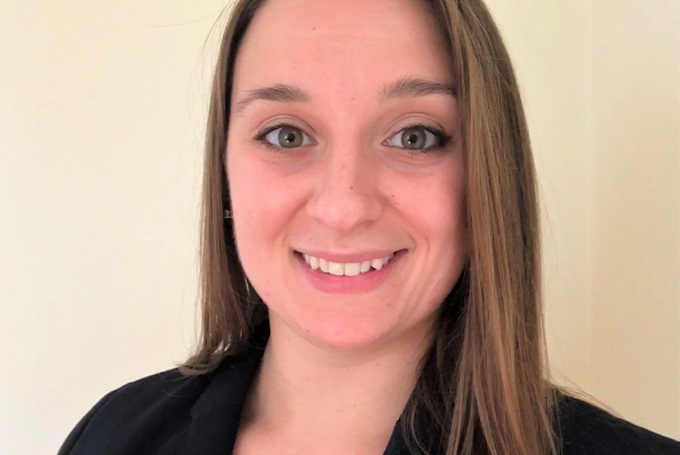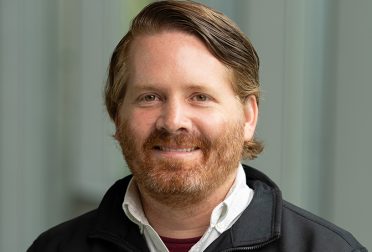B.S., Mechanical Engineering
Marcelle Durrenberger joins SDM from her position as an innovation engineer at New Balance, where she takes technologies that have been through an initial R&D phase and figures out how to scale them up into full production. She’s excited to join a program aimed at experienced professionals who have already been through several years in the workforce. “If you don’t come in with any of that experience, you’re missing so much of what is really happening and how things function. Things aren’t as pretty as they look when you’re coming out of undergrad.”
How did you first hear about SDM? Why did you apply to our engineering management program instead of a traditional MBA?
I came across SDM while looking at engineering management programs. I loved the technical and engineering focus of my work, but I was starting to do more managing of people. It’s a fascinating challenge to learn how to approach and speak to people with different backgrounds. What I loved about SDM was that it centered on the technical and systems aspects. I discovered that my manager at the time was actually a graduate of the program and she told me more about it. The program sounded incredible, and as an engineer it fit more than other engineering management programs. While I know the skills taught in an MBA can be applied to a technical environment, SDM is more suited to staying in a technical role while also incorporating business management components into a whole.
Can you tell me about your work at New Balance?
We’re like a development and a production team depending on what day of the week it is. You’re challenging yourself to validate and trial different things, and figure out everything that could go wrong, so that you can write all the documentation and solve problems. Previously my main focus was 3D printing, and now I’m shifting over to automated knitting machines, which is a completely different world. It’s a lot of fun and a huge learning curve!
I love it because I don’t know anyone doing any job similar to what I’m doing. It’s a crossover of R&D, production, and manufacturing. I get the front end of the picture but then also get the back end of what has to hit the manufacturing floor.
How do you think a systems approach will help you in your work at New Balance?
Right now, I’m taking the introductory course on system thinking while working on a large-scale timeline for expanding the use of automated knitting machines in our domestic manufacturing process. It’s a widely used tool in our international factories, but there is huge potential to leverage it differently in the US. We have a lot of great specialty knowledge in the company about this process and these machines. I’m working on making that knowledge accessible and the technology scalable to high volumes. Since I’m tackling this huge system and determining on how to approach it this degree lines up beautifully with what I’m doing with my program right now. I’m giving it my best shot, but with that additional systems knowledge, I’ll be able to catch things that I hadn’t comprehended before and understand different perspectives.
What’s something you hope to learn in the core class?
The biggest thing is learning where to start. Being able to separate the items that are in your system directly from their context is key, especially when you’re tackling a program that’s new to you. I have to think of everything to understand what’s coming down the line, but the next step is how to hone in.
I’m also excited to listen to other people’s approaches. There are so many other industries, so many different types of roles, and I want to see their perspectives. I’m actually grateful that other students have more experience than I do because I will get a huge amount out of it. Hopefully I will bring something very different to their perspectives as well. When you get this kind of experience to work alongside that’s a unique situation.
Are there other courses you’re interested in?
I’m leaning towards the financial and management courses. One of the hardest parts of my role is the marketing and finance components. I’ve been very much in machines and process and operations, so being able to understand that language and thinking will be helpful as I develop the knitting program. Oftentimes we want to bring in these new machines and need to figure out how to amortize the cost across this many thousands of parts, but if we are in the scaling process, those parts don’t exist yet.
I like to know as much of what’s as going on as possible. There are definitely people who love being subject matter experts, but I want to be an influencer who decides the program roadmap and what productions are coming, and really creates that future.
To learn more about SDM and the opportunities available in engineering and management, join us for a virtual info session on September 16. Register here!




